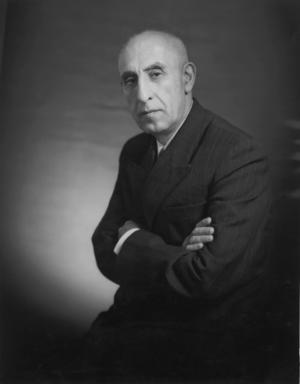The year of 1953 proved one of the
more fateful in the history of American foreign policy. The headline grabbing
concerns of the age – nuclear war, communist expansion – certainly overshadowed
the goings on of a then little thought of nation in the Middle East – Iran.
Listening to the mass media and
political posturing coming from the United States today may leave you with the
view that Iran is perhaps one of the most virulent enemies of the West. The use
of synecdoche here and ubiquitously throughout the short hand of geopolitics is
dangerous to say the least. One must take into account most Iranians are not
fond of their government – much in the same way that most Americans are not
fond of their government. And that the use of the name of a nation to describe
the actions of its government paints the entire population of that nation with
the same brush. Thus when a US President calls Iran evil, he
ends up calling
millions of innocent and potentially sympathetic Iranian citizens evil. The
racism here should be obvious. But as an experiment, this article will use this
same manner of discourse to refer to the actions of a handful of actors within
the US government in the discussion of a successful coup in Iran that took
place in 1953.
The roots of the coup are complex
but America’s involvement (and by America I mean any and all US citizens living
or dead) is really quite simple. The twentieth century will be remembered in
Middle East as the century in which everything about everything changed
irreversibly. The collapse of the Ottoman Empire and the discovery of oil would
welcome years of Western meddling, leading towards generation after generation
of armed conflict. For Iran, this destructive course was initiated by the
efforts of a man named William Knox D’Arcy who in 1908 successfully negotiated
a concession with Qajar dynasty for near total control of oil output from
Persia. Thus the Anglo-Persian Oil company was formed, later the Anglo-Iranian
Oil company, later British Petroleum aka BP (Yeah, these guys are batting a
thousand). This cushy position would continue through the First and Second World
Wars, several regime changes, and right to the birth of the modern state of
Iran.
Mohammed Mosaddegh
This is where things get tricky for
our good friends at the AIOC (Anglo-Iranian Oil Company). In the early 1950’s a
man by name of Mohammad Mosaddegh was voted into the office of Prime Minister
of Iran, and he, being a man of the modern era, a republican, not exactly tied
to any sense of loyalty to past monarchies and their deals with shady no longer
living British aristocratic oil speculators, begins agitating for
nationalization of the oil industry. Now naturally this kind of commie nonsense
was not going to be tolerated by the powers that be, that being the powers that
be in the White House. With some shrewd maneuvering, the AIOC was able to get
the ear of the Dulles Brothers, ardent cold warriors with an inside track to
the President – at the time – Dwight Eisenhower. What happens next is sort of
amazing. A man named Kermit Roosevelt acting on behalf of the CIA flies into
Tehran with a suitcase full of cash. He begins paying off anyone that will
listen to him, building up a coalition to overthrow the prime minister’s
government and replace it with a US backed dictatorship.
I think I just sank the Search Engine
Optimization of this blog post. Mosaddegh was replaced with a western puppet
known as the Shah who was in turn overthrown in 1979. When the dust settled a
harshly anti-western government stood in his place. So if you never understood,
America, why Iran hates you so much… that’s why.
By John Kluxen

No comments:
Post a Comment